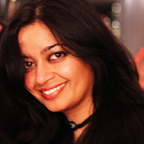A Different Kind of Politics
Lessons from creative activation in a consequential election
For those of you who know me, you know my work is political in being concerned with rights, equality, justice, and voice. But beyond being a diligent voter (and supporter of voting rights), I’ve never been very involved in electoral politics. That changed temporarily) for the United States’ 2020 elections.
For three months leading up to the end of the U.S. elections on November 3, 2020, I threw myself into electoral organizing and activism. It was an education — and an act of survival.
The election felt like a crucial battle in the fight for our very existence against a complete slide into fascism, against succumbing to climate change, against entrenched inequality and extraction. This was true not just for the U.S., but even in an era of declining U.S. influence, this felt (and in some cases remains) true for countries of the world who were emboldened and supported by the U.S. in moves toward authoritarianism. This election was, in a word, consequential.
So for three months ahead of the elections, I pulled myself away from my company and focused on electoral organizing and get-out-the-vote efforts. I worked on four distinct and varied efforts, all with creativity at the center:
Some voters feared that COVID-19 would prevent them from voting in person. Some feared that voting by mail might not work. We created a campaign that allowed voters to join a “voting parade” in their communities, so they could deliver their ballots to the box — safely and securely — and celebrate the act of voting.
wewalkthevote.com
The team behind 2017’s My100DayPlans — a civic action campaign that focused on a creative action of resistance a day for the Trump administration’s first 100 days — launched a thirty day voting action plan that encouraged voters to make informed voting choices for themselves and their communities — and have some fun along the way.
See our archives on Facebook or Twitter.
3. Writers for Democratic Action
A group of American writers came together as Writers Against Trump to describe why the 2020 election was so crucial and to “give our language, thought, and time to [the current president’s] defeat in November.”
I chose to focus on hope and why I thought progressives should back the Biden/Harris ticket. My statement is here.
The group transformed and broadened its purpose after the 2020 election, and is now known as Writers for Democratic Action. I remain a proud member of the community.
If you’re a writer who believes in the power of language for democratic participation, join here.
4. Get Out the Vote for Indian-American Aunties and Uncles
In 2020, there were nearly 2 million South Asian registered voters in the U.S., of which 1.8 million were of Indian origin. Nearly 23% of Indian-American voters were predicted to vote for the Trump campaign, which stood at over 500,000 votes. Outreach to these voters, especially elders susceptible to WhatsApp messaging from right wing sources in India and in the U.S., was a crucial lever in educating them about each party’s candidates. To engage this population in dialogue and voter education, we created a series of images specific to their culture and circulated them via WhatsApp and social media channels.
*****************
What a learning curve this was. I honestly couldn’t wait to get back to my core work after the election, but it was also an honor to be able to contribute.
Participating in this kind of civic action taught me two particular things about organizing communities. First, that electoral organizing takes a different set of muscles than the kind those of us in the realm of human rights and social justice usually exercise. (And electoral organizing is quite honestly exhausting. Hats off to the people who do this all the time.) Second, that in order to win elections, and more importantly, to create a direct line from elections to civic engagement in governance, a much more creative, direct kind of community engagement is necessary.
